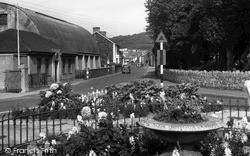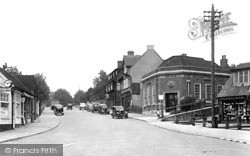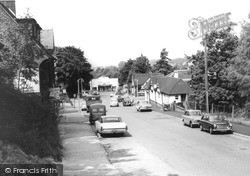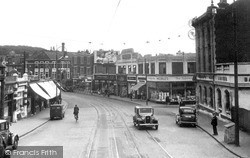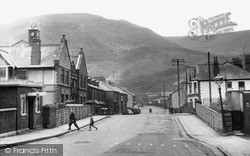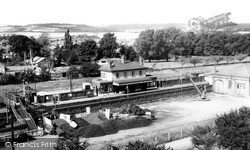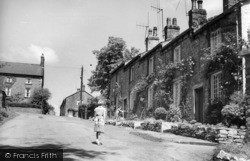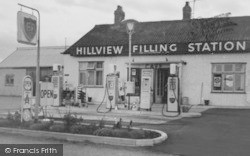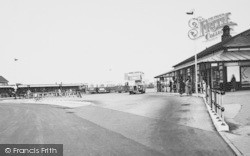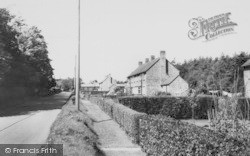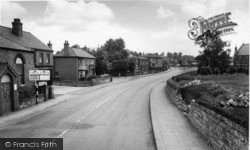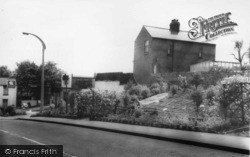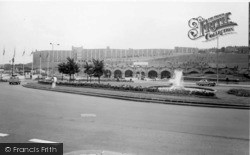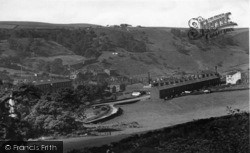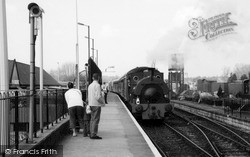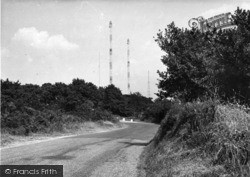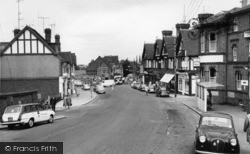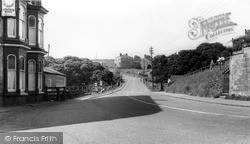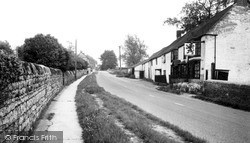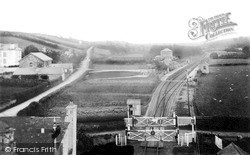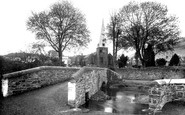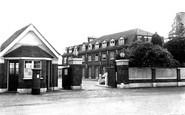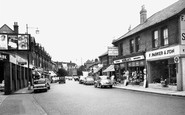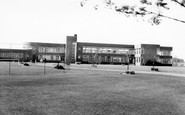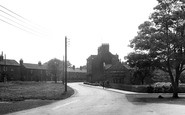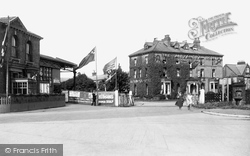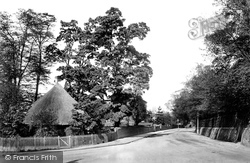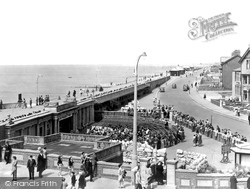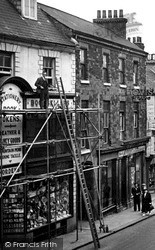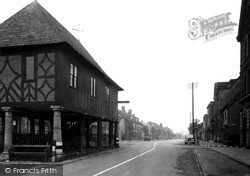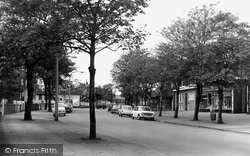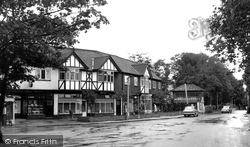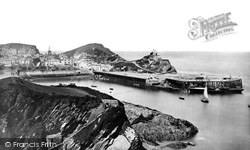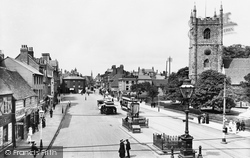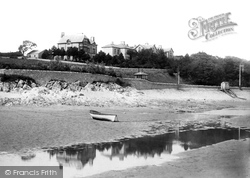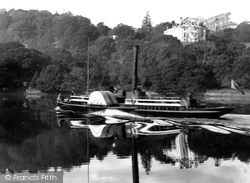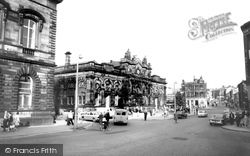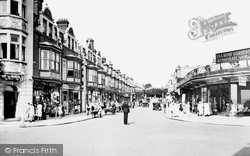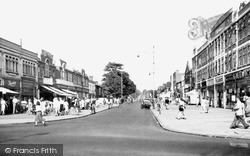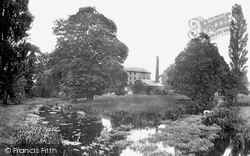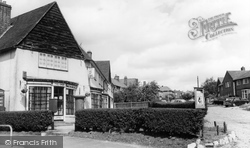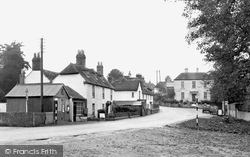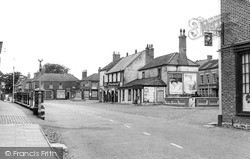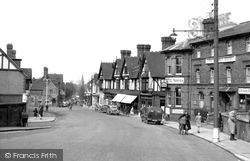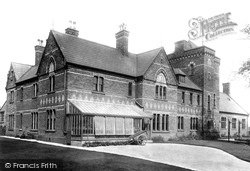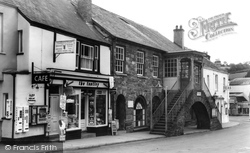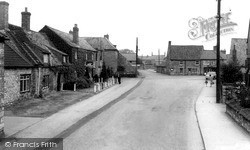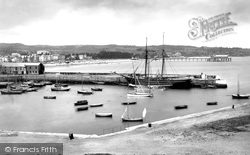Places
20 places found.
Those places high-lighted have photos. All locations may have maps, books and memories.
- Hinkley Point Power Stations, Somerset
- Lyne Station, Borders
- Perranwell Station, Cornwall
- Ferryhill Station, Durham
- Nantyronen Station, Dyfed
- Station Hill, Cumbria
- Station Town, Durham
- Widdrington Station, Northumberland
- Eggesford Station, Devon
- Bedlington Station, Northumberland
- Meopham Station, Kent
- Mintlaw Station, Grampian
- Ratho Station, Lothian
- Uphall Station, Lothian
- Alne Station, Yorkshire
- Hart Station, Cleveland
- Otterham Station, Cornwall
- Udny Station, Grampian
- Balfron Station, Central Scotland
- Ruthwell Station, Dumfries and Galloway
Photos
2,456 photos found. Showing results 581 to 600.
Maps
73 maps found.
Books
Sorry, no books were found that related to your search.
Memories
3,079 memories found. Showing results 291 to 300.
Evacuation
We were evacuated to North Molton during the Second World War, I remember going to the school and being billeted in various homes, one on the hill near a baker's shop - what lovely smells. I also remember the Lysander plane that ...Read more
A memory of Swimbridge in 1940 by
Catterick Camp 1944
Following completion of my initial Army training at Squires Gate Camp, Blackpool and at Warley (Essex) I was posted to the School of Signals at Catterick. Le Catau and Baghdad Lines. After several weeks of Training as an ...Read more
A memory of Catterick in 1944
My Dad Was At Hendon Police School In 1958
My late father was a police officer with the Royal Malaysian Police between 1953 and 1982 inclusive. In the early years of his career he served under several British officers and was sent to the thick ...Read more
A memory of Colindale in 1958 by
Cranford Shops 1980s 2010
Starting from Tesco Express: This used to be a block of about 2 or 3 shops which included a building society and a travel agent. Next to this was Barclays Bank which closed down in the late 1980s/early 1990s. It remained ...Read more
A memory of Cranford
The Grocers Next To Morgan's!
Born in 1939 and living in Banstead Road during the war, I have many memories of Purley, Croydon and Coulsdon. An alleyway ran from the High Street to the station, where I used to meet my father in the evenings from the ...Read more
A memory of Purley in 1940 by
Tidworth In The Mid 1950's
I attended this school in September of 1953 until December 1954, when I left and went to Salisbury College of Further Education. My father was in the army and we came back from Germany in July 1953 to live in ...Read more
A memory of North Tidworth in 1953 by
North Shields Test Centre
The building which houses North Shields test cente in Cecil Street was erected in1848 as a chapel for people to worship. It remained this way until 1891 when it changed ownership and became a sauna and plunge baths ...Read more
A memory of North Shields by
Greatham Railway Station, And Station Houses.
Well I lived in Middlesbrough, I used to get the bus to Greatham, my sister Sylvia and I, we would visit our relations Uncle Jack Wright, and Aunty Nellie, we also had another relative there, Uncle ...Read more
A memory of Greatham in 1950 by
Eels
We lived at the bottom of Chapelton village, our house facing Chapelton station. When the elvers were due, Dad used to put a pillow case,at the end of a wooden clothes line post, and they swam up the river in columns, and Mother would fry them. You don't get many of them up here in the Midlands.
A memory of Chapelton by
Young Lad On The Platforms
I was a 10 year old lad living at the Alexandra Inn now known as the Hungry Fox pub. Being a keen rail fan then and as now, wandering around the station and the platforms watching trains was a regular past time. Of ...Read more
A memory of Broadclyst in 1956 by
Captions
1,403 captions found. Showing results 697 to 720.
This hotel is just beside the North Eastern Railway Station.
Walsworth Road in 1901, at the junction with Whinbush Road and looking towards the station. The building on the left is a lodge forming part of the Hermitage estate.
Though the resort was away from the railway, holiday-makers could easily reach it by tram, either from Fleetwood or from North Station.
This view looks south, downhill past Horden's booksellers and stationers, which is undergoing repair.
On the right is the junction with Station Road. Under the Town Hall once stood an old 18th-century fire engine with wooden wheels, and also the old stocks.
Station Road, though quite short in length, still manages to achieve a broad mix of shops and dwelling houses.
Very little has changed in these shops, which were built immediately opposite Freshfield station.
The building to the rear of the quay was - and is - the lifeboat station. Note the paddle steamer at the quay.
From south west of the station go first to St Mary's Butts, whose wide street was used until about 1600 for archery practice at the 'butts'.
The cross sands route from Hest Bank and Arnside comes ashore by Kents Bank station, which is regularly used in summer by those groups of walkers who have been led across Morecambe Bay,
Apart from making day trips for tourists, and ferrying guests from the railway station at Kingswear to the hotels at Totnes, the paddlers performed another essential function - everyday transport for
Proximity to the bus station kept this area busy. There was still plenty of on-street parking at this time, before Accrington developed various car parks.
Station Road was probably the first view of the town for most tourists, leading as it does from the railway to the sea front.
Of course most of the shops have changed hands, for example Killwick's, (pronounced Kill'ick's) the furniture shop, is no longer on the corner of Station Parade.
There has been a mill here since Saxon times - and perhaps earlier, as Kelvedon is believed to be the site of the Roman station Canonium.
The post box still stands in the garden of the shop at the corner of Station Road and Woodside Road, but the telephone box, peeping into the left of the photograph, has disappeared.
Churchill, the War Cabinet and the Allied Chiefs used the local railway station as their headquarters during the planning of D-Day in 1944, conducting operations from a special train based here.
The petrol station in the centre of the market place was the Town Hall with an open arcaded ground floor, the arches now glazed. It dates from 1764, and surely deserved a better fate.
It developed around the railway station when houses were built for middle-class Victorian families who chose to live surrounded by beautiful woodland scenery.
This view will be familiar to users of Sainsbury's petrol station today!
The Tantivy (left) was named after the coach service that connected with Dulverton's railway station, two miles away.
Waddington is now noted more for its large Royal Air Force station to the east of the village, but it grew up on a diversion of Ermine Street to the western scarp of the limestone ridge.
Bangor's main street runs between the station and the harbour. The street today has been partly pedestrianised. In the early years of the 19th century, there were only 93 houses in the town.
The deserted pier with its lifeboat station on the opposite side, and the unmanned boats in the foreground, each make their own contribution towards a scene of undisturbed tranquillity, whilst in the
Places (20)
Photos (2456)
Memories (3079)
Books (0)
Maps (73)


